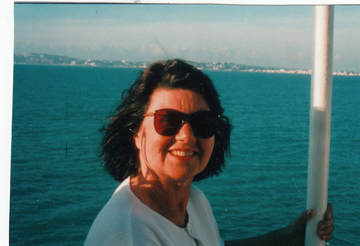 Sherrill on the little red boat
Sherrill on the little red boat "A lot of different ways," we replied.
Sherrill subscribed to a newsletter that printed pieces from travelers about places that had excited them, often with their own photographs. Over the years, she picked up some tantalizing ideas from it. She also discovered "the little red boat," as the World Explorer was affectionately known, in that newsletter. The ship carried only fifty passengers, but took them on some unusual trips.
The itinerary might have been designed for us. It focused on the heart of the Mediterranean Sea, from Nice in France south to the French island of Corsica, then on to the Italian island of Sardinia, continuing to Tunisia in north Africa, then making several stops around the coast of Sicily, and finally ending on the islands of Malta, visiting historical sites all along the way. Historians would give background lectures on board and accompany passengers on shore excursions. We liked the fact that it was a small boat with an intimate, friendly feel.
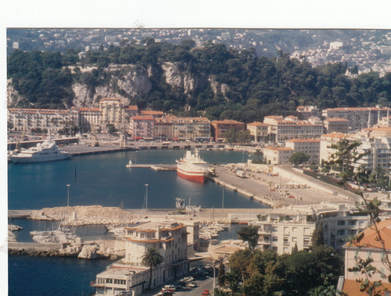 The little red boat in Nice, France
The little red boat in Nice, France 12th century Genoese citadel-Porto Vecchio. Napoleon born Ajaccio, 1768. Bonifaccio-natural harbor, old town within city walls. St. Helena left bit of True Cross in cathedral. Many Moroccans emigrate to Corsica. Ancient cistern under church. Only 5 1/2 million years ago when Atlantic flowed into Mediterranean basin.
Some of those facts might have had a connection with each other, but I'm not sure how.
Corsica may have been part of France, but it felt Italian to us, and as far as the Corsicans were concerned was its own world, even with its own language—and its own unique, dramatic beauty. Mountains, rugged crags, sweeping beaches, forests, ancient ruins, and massive fortifications surprised us around every bend. The roads were rough and the cobblestone walkways and steps in the towns not much better, but we told ourselves that this was part of the charm. The hearty meals, heavy on seafood, completed the job of winning us over. And then there was the local wine....
"Look—like Spain," I said, as we drove along. "Or is it Greece?"
"Maybe both," Sherrill smiled.
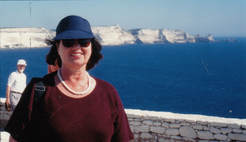 Sherrill on Corsica
Sherrill on Corsica We also came to realize as we sailed through this part of the Mediterranean that its history was a story of constant war. Fortifications dominated just about every port we visited, from the town of Bonifacio perched on Corsica's white limestone cliffs to the great walls and towers of Alghero in Sardinia and Cagliari on Sicily to the massive citadel of Valletta on Malta.
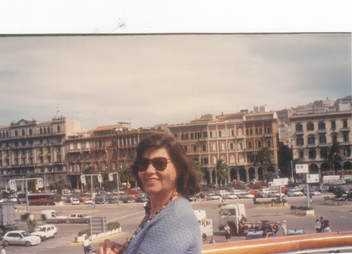 Sherrill, Cagliari, Sardinia
Sherrill, Cagliari, Sardinia "That one, too," Sherrill told me, from time to time, as we strolled through the gardens, until I had quite a list of plants that she wanted to remember.
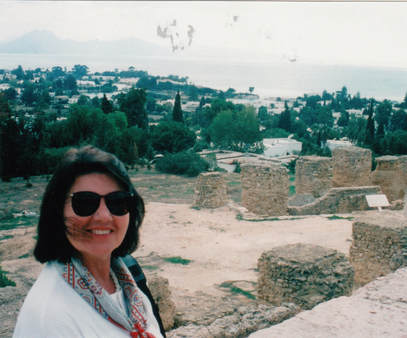 Sherrill, Roman Carthage, Tunisia
Sherrill, Roman Carthage, Tunisia 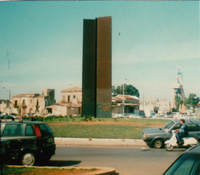 Palermo monument for Mafia victims
Palermo monument for Mafia victims The crew told us to be careful walking around the city alone and not to carry anything valuable, if we did. Empty handed, our money, I.D., and cameras hidden, Sherrill and I spent a fascinating afternoon wandering among the once prosperous old neighborhoods of the city without being bothered once. Back on the ship, we discovered that we were the only two passengers who'd ventured out on our own and that the others were amazed that we'd been so daring.
"Okay," I groaned. "Why?"
"So we can see when we go through the Strait of Messina, of course."
Then I remembered that we'd talked about when the ship would pass through the channel between Italy and Sicily on its way around the island to the ancient city of Syracuse. We woke up and looked out our window alright, but In the dark didn't see much except occasional lights sparkling on one side or the other. Nevertheless, Sherrill was pleased to have done it.
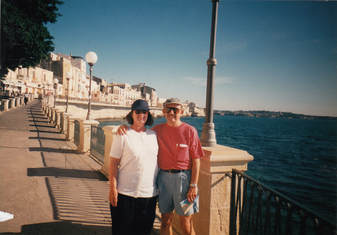 Sherrill & Bruce, Syracuse, Sicily
Sherrill & Bruce, Syracuse, Sicily 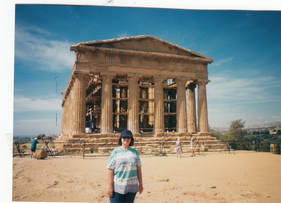 Greek temple of Concordia, Sicily
Greek temple of Concordia, Sicily 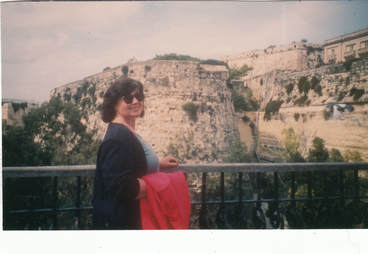 Sherrill, Valletta fortifications, Malta
Sherrill, Valletta fortifications, Malta We hoped when we said goodbye to the World Explorer to sail on her again. The little red boat often departed for other itineraries that appealed to us, but we didn't get around to signing up for them. Then, it was too late: she hit an iceberg in Antarctica and sank.
To be continued....
Please pass these posts on to anybody else you think might enjoy them.
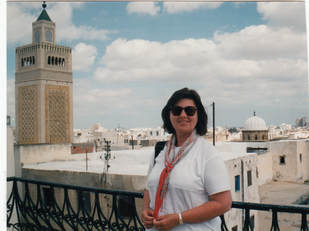
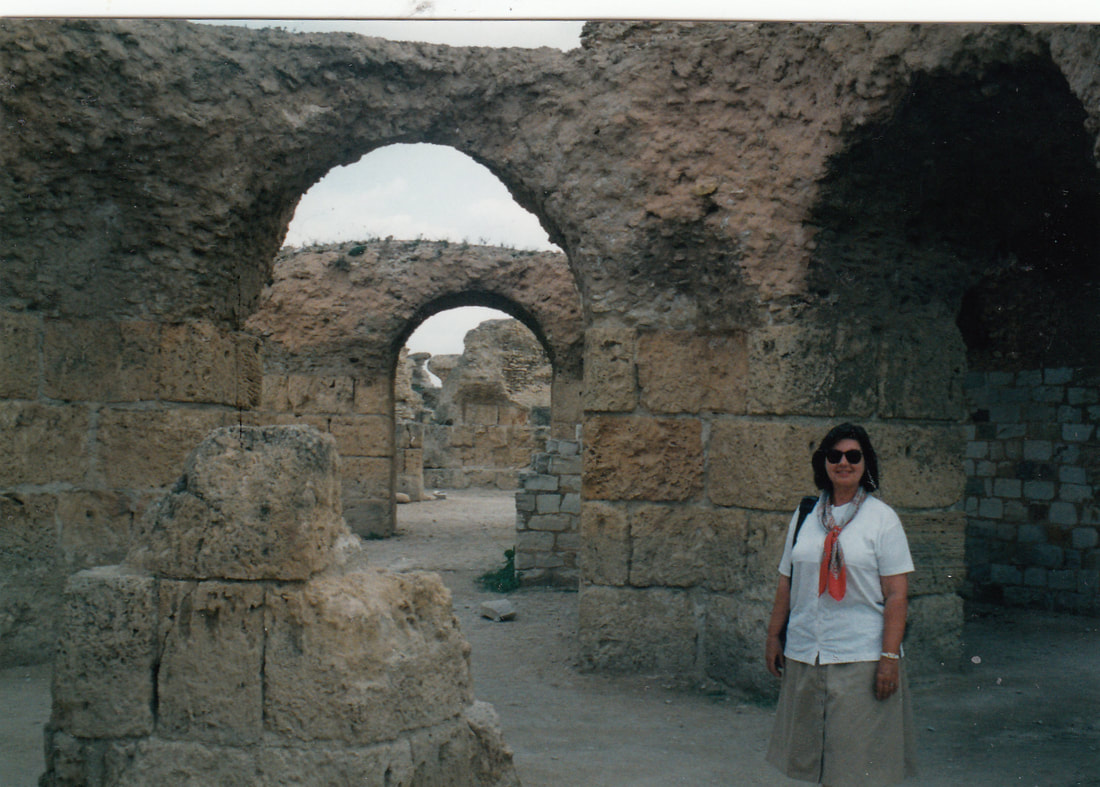
 RSS Feed
RSS Feed